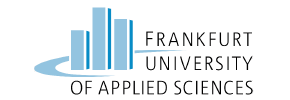Edinburgh Napier University (ENU) is one of Scotland’s leading international universities; with 49% of its 18,000+ student base recruited from out with the UK.
Academically, ENU is organised into six Schools: the Business School, School of Arts & Creative Industries; School of Computing; School of Engineering & the Built Environment; School of Life, Sport & Social Sciences and the School of Health & Social Care.
There are a total of 1,512 members of staff: 883 school based, and 629 working in professional service departments. ENU has over 85,000 active graduates who play a dynamic role in ENU life as volunteers, supporters and donors.
ENU has a reputation for the diversity of its student community, the employability of its graduates and its international reach. It’s strategic vision is to build its reputation as a leader in research, teaching and innovation in education, to grow transnational higher education delivery and the international accessibility of its programmes and to grow the international student community; ensuring effective integration and high satisfaction.






